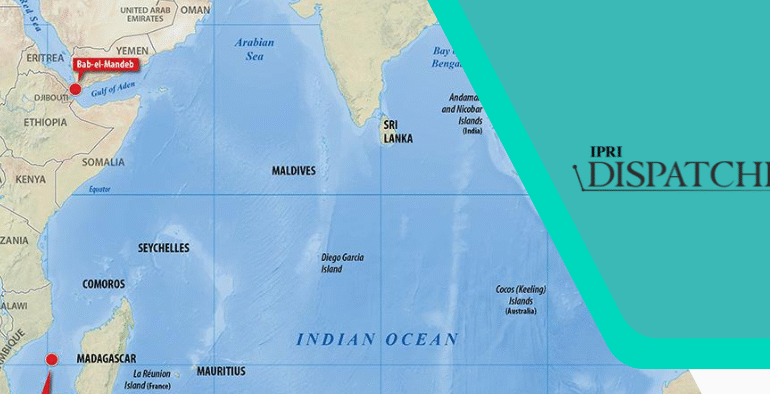Intelligence agencies are responsible for safeguarding the state’s interests. They are often known as the deep state. For the authoritarian regime, the role of the deep state is equivalent to the backbone of the system. Intelligence blind spots are defined as the loopholes in the secretive system of a country. The authoritarian regimes function on the support provided to them through surveillance and repression by the intelligence department for strategic decision-making. In the case of Russia and Iran, there were critical loopholes, i.e., anticipating threats, managing crises, and adapting to new realities.
In 2025, the blind spots in the authoritarian regimes of Russia and Iran highlighted their vulnerabilities, which led to a huge crisis. For example, the Spider Web Operation in Russia and the 12-Day Iran-Israel war during the same timeline. But in authoritarian regimes, political interference, overcentralization, and technological vulnerabilities cause structural lapses in the secretive system.
Authoritarian states are more prone to blind spots, as the inconvenient truths are often taken as a threat to the personal interests of the leaders. The intelligence theories and cognitive biases analyse such blind spots. Other areas of concern include the internal competition between the security agencies and tug for power. For example, the dominance of Iran’s Islamic Revolutionary Guard Corps (IRGC) and Ministry of Information (MOI). Hence, the competition for prestige often leads to distorted facts.
The Blind Spots of Russian military intelligence (GRU) include the prolonged war with Ukraine. The GRU failed to analyse and evaluate the role of Western aid to support Ukraine. Russia underestimated Ukraine and believed it to gain a quick victory and seize control over Kyiv by installing a puppet regime just to stop Ukraine from becoming a member of NATO (North Atlantic Treaty Organization).
Additionally, the West is supporting Ukraine through military and intelligence aid. The Five Eyes Alliance is playing an active role by supporting Ukraine in the Russia-Ukraine war. On the other hand, in 2025, the United Kingdom sanctioned the Russian spies for spreading chaos and disorder, such as three units of the GRU and their eighteen officers.
Where there is political interference, there is a lack of honest assessments, evaluations, intelligence cooperation, and more competition. Eventually, it leads to strategic surprise. For example, in 2025, the Spider Web Operation was the biggest strategic surprise for Russia, which exposed its compromises and loopholes in its intelligence system.
The operation was planned and executed in 18 months. Consequently, the covert operation inflicted strategic damage to Russia, which involved a long-range bomber fleet, potentially destroying or degrading about one-third of the aircraft, including Tu-95, Tu-160, and Tu-22M3 bombers, along with an A-50 airborne early warning aircraft.
Iran is another classic case study of intelligence blind spots. For example, in 2024, the killing of Ismail Haneya in the IRGC’s guesthouse at Nishat Compound, Tehran. But the lack of cooperation, analysis, and coordination between the intelligence agencies in an authoritarian regime led to more critical intelligence failures in 2025.
In a strategic surprise in June 2025, Israel eliminated the top command of the IRGC (Hossein Salami, Amir Ali Hajizadeh, Mohammad Bagheri, Golam Ali Rashidi, etc) in the first wave of their strikes on Tehran. Though in the 12-Day Iran-Israel war, Israel could not achieve its main goal of regime change in Iran, it sabotaged the nuclear sites (Natanz) and drone facilities. It destroyed the military sites and assets on a larger scale, such as the missile and drone facilities. This shows that the Iranian compromised and politicized intelligence institutions could not identify or assess the threat.
Comparatively, Russia and Iran are both classic examples of intelligence blind spots, particularly in reference to the year 2025. The similarities between them include the over-centralization and political interference in the system. As well as the diplomatic isolation, suppression of critical opinion and analysis, power competition and lack of coordination.
Russia and Iran also underestimate the enemy’s moves and traps, compromised systems with critical loopholes, suppression of public voices, and prioritizing political survival of regimes on the domestic level over critical assessments to safeguard strategic interests.
Centuries ago, Sun Tzu rightly stated, ‘‘If you know the enemy and know yourself, you need not fear the result of a hundred battles. If you know yourself but not the enemy, for every victory gained, you will also suffer a defeat. If you know neither the enemy nor yourself, you will succumb in every battle.’’
Differences also exist between the two authoritarian regimes’ intelligence blind spots. For example, the nature of Russian failures is about strategic misreading of the Ukraine conflict and its allies, while Iran’s blind spots were counterintelligence, forward defence doctrine through proxies, and a lack of strategic capabilities, such as an Air Defence system. For these authoritarian regimes, loyalty is equal to accuracy.
In conclusion, the role of authoritarian regimes in systematic blind spots of intelligence is visible through the case studies of Russia and Iran. It has weakened the resilience of centralized systems and authoritarian regimes in modern-day conflicts. These conflicts involve cyber domains, Artificial Intelligence, and Open-Source Intelligence, where political survival outweighs objective truth.
Disclaimer: The views expressed in the article are of the author and do not necessarily represent the institute’s policy.
Authored by: Anees Fatima Sherazi holds an MPhil in Strategic Studies from NDU, Islamabad.
Read More: Strategic Guidelines for Pakistan-Russia Cooperation

